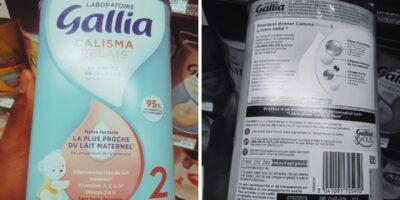Conclusions on the long-term danger of consuming American rice in Haiti remain valid, but changes will be made in the interpretations of the study, according to one of the University of Michigan researchers
The University of Michigan’s scientific research on the danger of American rice consumed in Haiti has been « retracted » by its authors, according to a note in the Journal of Agriculture, Food Systems, and Community Development.
According to the results of the study published in February 2024, rice consumed in Haiti, from the United States and other countries, contains twice as much arsenic and cadmium, two substances dangerous to health, compared to local rice.
Read also: What to do with the dangerous rice from the USA? A researcher answers.
In a press release issued on February 24, 2024, the entity representing the industry, USA Rice, attacked the scientific basis of the University of Michigan’s work in a context where Haiti imports more than $200 million worth of rice from the United States every year.
Most of the concerns « came from scientists working with the rice industry in the United States, so they are biased, » Dr. Jackie Goodrich, one of the authors of the study, told AyiboPost.
According to the researcher, the scientific work will be modified and republished in the coming months.
« The actual data and facts will not change, » says Dr. Goodrich. Imported rice still contains twice as much arsenic as rice grown in Haiti, and this could have long-term health impacts, » she says.
Retraction remains a common process in the scientific community. It occurs when a serious problem has been discovered after publication, which discredits work in the eyes of the scientific community.
More than 10,000 research articles were retracted in 2023, « a new record » according to the journal Nature.
The actual data and facts will not change. Imported rice still contains twice as much arsenic as rice grown in Haiti, and this could have long-term health impacts.
Many well-known scientists, from Albert Einstein to Thomas Südhof, winner of the Nobel Prize in Physiology or Medicine in 2013, have had to retract articles in their careers.
Retracted articles can be cited, and some journals issue specific guidelines for this.
In the retraction note, the Michigan researchers acknowledge concerns about the interpretation of the results in the paper.
« Our study measured total arsenic in domestic and imported rice samples collected from the same markets in Haiti. Most health guidelines are based on inorganic arsenic concentrations. Since the proportion of total arsenic that is inorganic arsenic can vary widely in rice, referencing these guidelines was potentially confusing and misleading to readers. »
The researchers assure that the confusion was not intentional.
Alongside a « clear and concise interpretation of the results, » they promise to « reduce the discussion on the socio-political context in which these results are embedded and focus our discussion on the results obtained directly from our study. »
Watch this video where AyiboPost explained in 2019 the negative impacts of imported rice on Haiti’s national production and economy:
Keep in touch with AyiboPost via:
► Our Telegram channel : click here
► Our WhatsApp channel : click here
► Our Community WhatsApp:click here







Comments